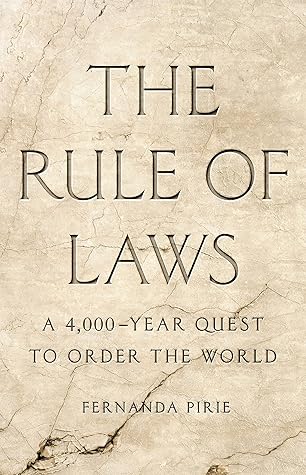Like Jewish law, the Islamic fiqh was a religious project. In both, lawmakers adopted casuistic forms when they gave guidance to ordinary people and included rules that judges could use to resolve disputes and regulate social relations, and that merchants could use to shape contracts. But like the Hindu brahmins, the scholars were more concerned with duties than rights, and the most powerful rulers never seriously challenged the hierarchy of religious authority.
Welcome back. Just a moment while we sign you in to your Goodreads account.


